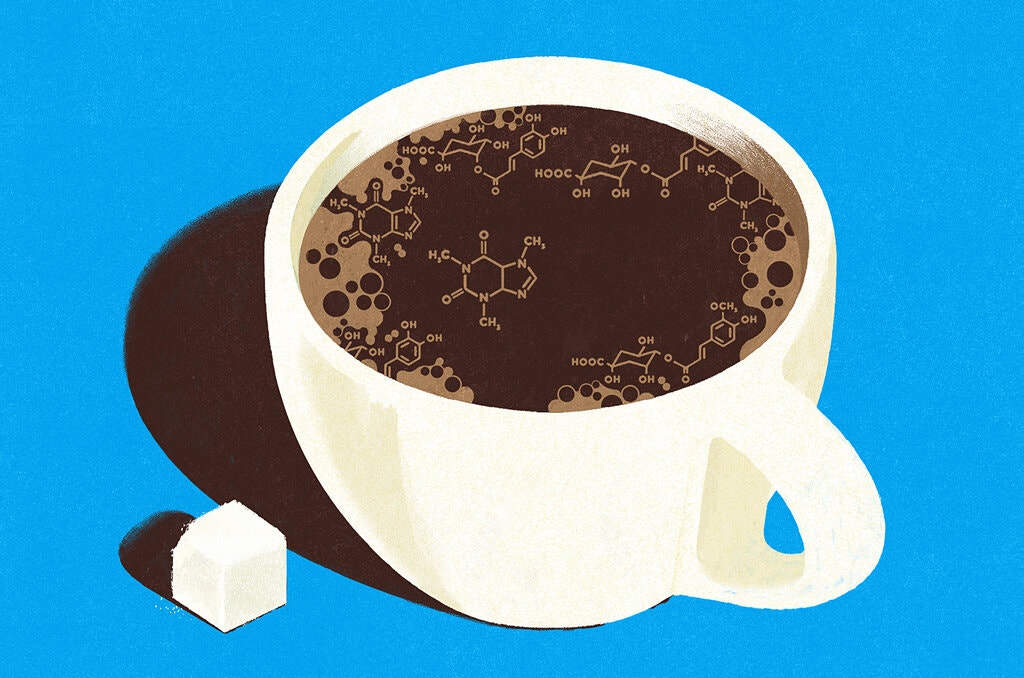One elderly friend who prepandemic had traveled from Brooklyn to Manhattan by subway to buy her preferred blend of ground coffee arranged to have it delivered. “Well worth the added cost,” she told me.
All of us should be happy to know that whatever it took to secure that favorite cup of Joe may actually have helped to keep us healthy. The latest assessments of the health effects of coffee and caffeine, its main active ingredient, are reassuring indeed. Their consumption has been linked to a reduced risk of all kinds of ailments, including Parkinson’s disease, heart disease, Type 2 diabetes, gallstones, depression, suicide, cirrhosis, liver cancer, melanoma and prostate cancer.
In fact, in numerous studies conducted throughout the world, consuming four or five eight-ounce cups of coffee (or about 400 milligrams of caffeine) a day has been associated with reduced death rates. In a study of more than 200,000 participants followed for up to 30 years, those who drank three to five cups of coffee a day, with or without caffeine, were 15 percent less likely to die early from all causes than were people who shunned coffee. Perhaps most dramatic was a 50 percent reduction in the risk of suicide among both men and women who were moderate coffee drinkers, perhaps by boosting production of brain chemicals that have antidepressant effects.
As a report published last summer by a research team at the Harvard School of Public Health concluded, although current evidence may not warrant recommending coffee or caffeine to prevent disease, for most people drinking coffee in moderation “can be part of a healthy lifestyle.”
It wasn’t always thus. Over the years, coffee’s been deemed a cause of conditions such as heart disease, stroke, Type 2 diabetes, pancreatic cancer, anxiety disorder, nutrient deficiencies, gastric reflux disease, migraine, insomnia, and premature death. As recently as 1991, the World Health Organization listed coffee as a possible carcinogen. In some of the now-discredited studies, smoking, not coffee drinking (the two often went hand-in-hand) was responsible for the purported hazard.
“These periodic scares have given the public a very distorted view,” said Dr. Walter C. Willett, professor of nutrition and epidemiology at the Harvard T.H. Chan School of Public Health. “Overall, despite various concerns that have cropped up over the years, coffee is remarkably safe and has a number of important potential benefits.”
That’s not to say coffee warrants a totally clean bill of health. Caffeine crosses the placenta into the fetus, and coffee drinking during pregnancy can increase the risk of miscarriage, low birth weight and premature birth. Pregnancy alters how the body metabolizes caffeine, and women who are pregnant or nursing are advised to abstain entirely, stick to decaf or at the very least limit their caffeine intake to less than 200 milligrams a day, the amount in about two standard cups of American coffee.
The most common ill effect associated with caffeinated coffee is sleep disturbance.
Dr. Willett, now 75, said, “You don’t have to get to zero consumption to minimize the impact on sleep,” but he acknowledged that a person’s sensitivity to caffeine “probably increases with age.”
Caffeine is one of more than a thousand chemicals in coffee, not all of which are beneficial. Among others with positive effects are polyphenols and antioxidants. Polyphenols can inhibit the growth of cancer cells and lower the risk of Type 2 diabetes; antioxidants, which have anti-inflammatory effects, can counter both heart disease and cancer, the nation’s leading killers.
None of this means coffee is beneficial regardless of how it’s prepared. When brewed without a paper filter, as in French press, Norwegian boiled coffee, espresso or Turkish coffee, oily chemicals called diterpenes come through that can raise artery-damaging LDL cholesterol. However, these chemicals are virtually absent in both filtered and instant coffee.
Also countering the potential health benefits of coffee are popular additions some people use, like cream and sweet syrups, that can convert this calorie-free beverage into a calorie-rich dessert.
With iced coffee season approaching, more people are likely to turn to cold-brew coffee. Now rising in popularity, cold brew counters coffee’s natural acidity and the bitterness that results when boiling water is poured over the grounds. Cold brew is made by steeping the grounds in cold water for several hours, then straining the liquid through a paper filter to remove the grounds and harmful diterpenes and keep the flavor and caffeine for you to enjoy. Cold brew can also be made with decaffeinated coffee.
Decaf is not totally without health benefits. As with caffeinated coffee, the polyphenols it contains have anti-inflammatory properties that may lower the risk of Type 2 diabetes and cancer.



